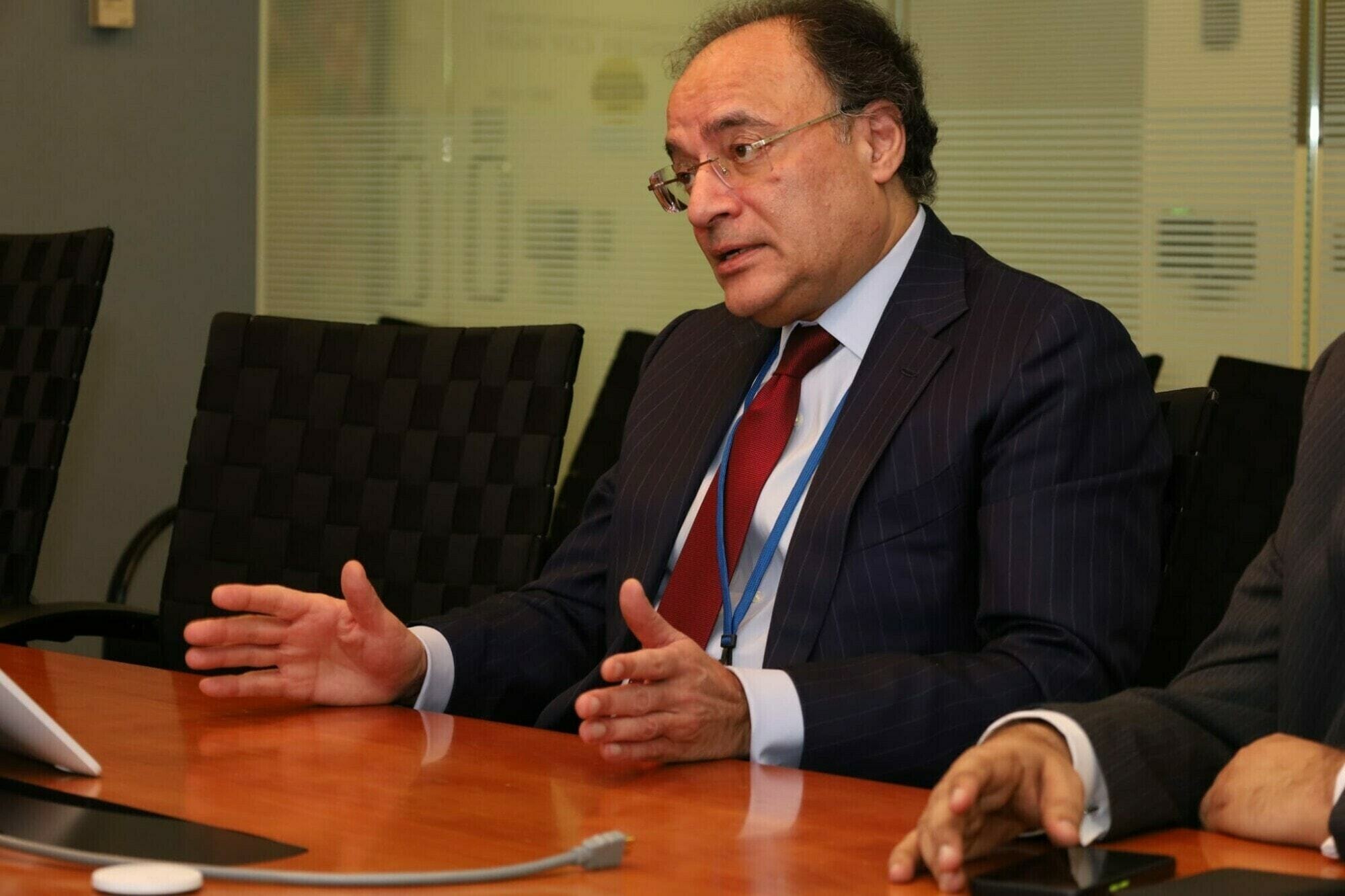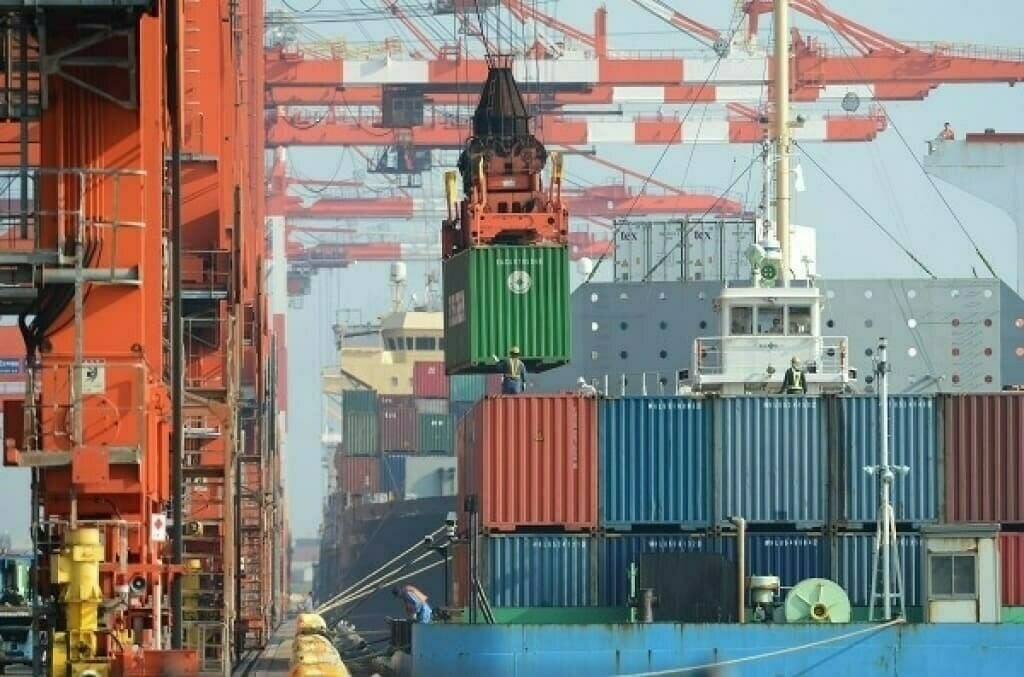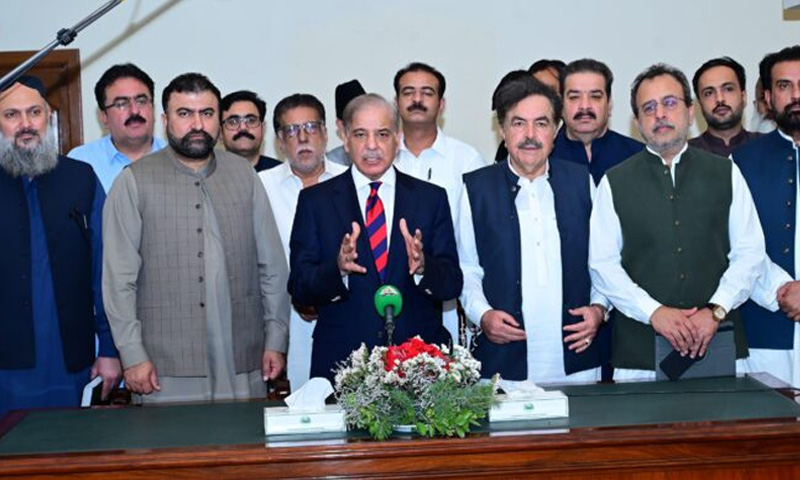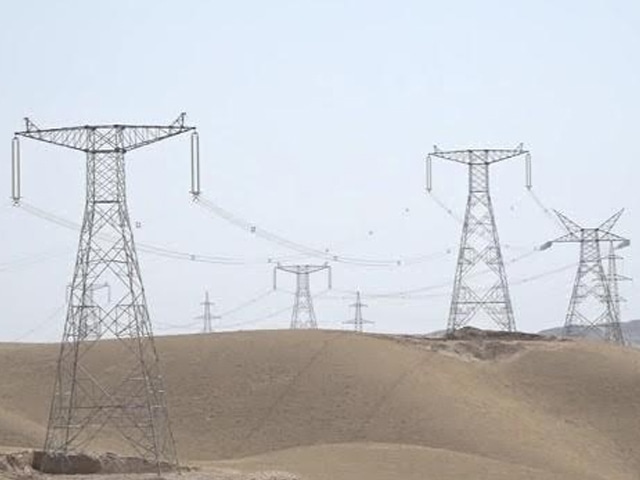PTBP Web Desk
Federal Minister for Finance and Revenue, Senator Muhammad Aurangzeb, expressed his full support for APM Terminals’ commitment to invest in Pakistan.
The Minister assured APM Terminals of the government’s cooperation in creating an investment-friendly climate conducive to growth and development. The discussion took place during a meeting between the Finance Minister and Keith Svendsen, CEO of APM Terminals, held at the Ministry of Finance.
The meeting, which was also attended by key stakeholders from APM Terminals and the Pakistani diplomatic mission, focused on the future of Pakistan’s port infrastructure and the plans to foster bilateral economic ties with Denmark. A significant part of the discussion revolved around the progress made following the signing of a Memorandum of Understanding (MoU) last month between the governments of Pakistan and Denmark. This agreement aims to enhance bilateral cooperation and promote sustainable economic growth through green and Public-Private Partnership (PPP) investment projects.
The visit of Keith Svendsen, accompanied by prominent figures from the APM Terminals group, underscored the growing interest of international companies in Pakistan’s infrastructure sector. Notably, Jakob Linulf, Ambassador of Denmark to Pakistan, and Shoaib Sarwar, Pakistan’s Ambassador to Denmark, were also present at the meeting, signaling the importance of fostering deeper bilateral relations. Other key figures included Rene Piil Pedersen, Managing Director of A.P. Moller Maersk Singapore, Ahmed Hassan, Senior Vice President of A.P. Moller Maersk Group, and Sander Riemersma, Head of Portfolio Strategy at APM Terminals.
Senator Aurangzeb welcomed the delegation and emphasized the Pakistani government’s commitment to facilitating investments in infrastructure development, particularly in the port sector, which plays a critical role in Pakistan’s trade and economic connectivity. He assured APM Terminals of a level-playing field and the provision of all necessary support for smooth operations and growth within Pakistan.
During the meeting, CEO Keith Svendsen briefed the Finance Minister on APM Terminals’ business portfolio and its ambitious plans for Pakistan. Svendsen outlined the company’s vision for improving port infrastructure, which is expected to generate enhanced revenue growth and improve Pakistan’s regional trade and connectivity.
The investment in Pakistan is a part of APM Terminals’ broader strategy to strengthen its global port operations and expand its footprint in emerging markets. The company plans to bring in state-of-the-art technology and operational efficiency to enhance Pakistan’s port facilities, which could significantly improve the country’s global trade position and boost revenue generation.
According to Svendsen, the investment would also create numerous job opportunities and contribute to the development of local communities through improved infrastructure and services. This vision aligns with Pakistan’s long-term goals of fostering economic development and creating a sustainable, competitive trade environment.
The MoU between the governments of Pakistan and Denmark highlights the emphasis on green and sustainable investments. Senator Aurangzeb reiterated that Pakistan is committed to embracing green technology and sustainable practices in infrastructure development. He noted that projects like those planned by APM Terminals would not only enhance Pakistan’s port capacity but also contribute to the country’s environmental goals, in line with global sustainability trends.
The Pakistani government aims to create a conducive environment for private investment, especially in projects that focus on clean energy, green technology, and sustainable economic growth. Through PPP initiatives, the government is working to bring in international expertise and funding to accelerate the development of infrastructure that meets global standards for efficiency and sustainability.
One of the main aspects of the investment plan discussed was APM Terminals’ focus on port infrastructure development in Pakistan. The company aims to upgrade and expand existing port facilities, which would help improve Pakistan’s cargo handling capacity and regional connectivity. This, in turn, is expected to boost trade flows and make Pakistan an even more attractive destination for international businesses.
Port infrastructure plays a crucial role in Pakistan’s economy, especially in facilitating international trade. The development of efficient, high-capacity ports will reduce logistics costs, attract foreign investment, and help diversify Pakistan’s trade portfolio. The collaboration with APM Terminals and other international investors is expected to create a modern, competitive port system that will strengthen Pakistan’s position in global trade.
Minister Aurangzeb assured that the government of Pakistan would take all necessary measures to ensure that the business environment remains conducive to foreign investments. The government is committed to ensuring that investors, particularly those in the infrastructure and logistics sectors, are provided with the support and facilities they need to operate successfully.
Pakistan has been working on improving its ease of doing business ranking by implementing reforms in regulatory frameworks and offering tax incentives to foreign investors. The Finance Minister emphasized that such reforms would continue to facilitate the establishment and expansion of businesses in Pakistan, especially in high-priority sectors like infrastructure development.
With the government’s full backing and a shared vision of enhancing Pakistan’s port infrastructure, the prospects for APM Terminals in Pakistan look promising. The ongoing dialogue between the Danish and Pakistani governments signals a strong commitment to future collaboration in economic and infrastructure development.
As APM Terminals moves forward with its plans, it is expected that Pakistan will benefit significantly from improved port infrastructure, increased trade volume, and stronger economic ties with Denmark. The cooperation between both countries could serve as a model for further investment in Pakistan’s infrastructure sector and contribute to the country’s long-term growth.




